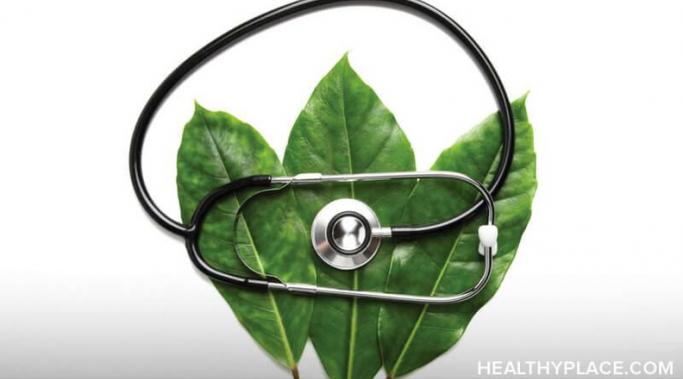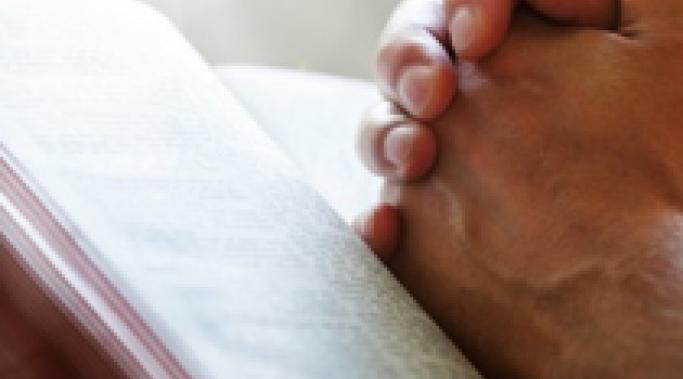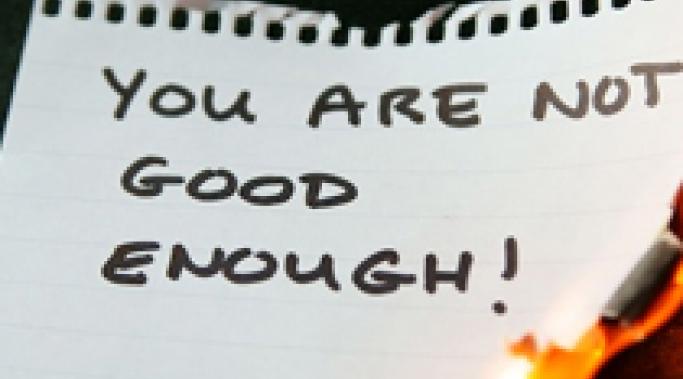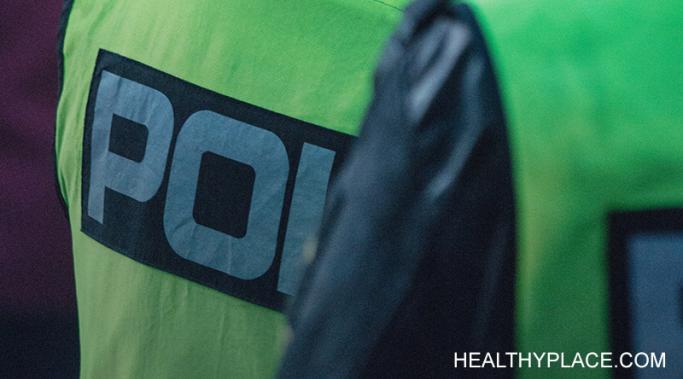Are there alternative treatments for schizophrenia? Recently I was diagnosed with liver disease, cause unknown. As I don't drink and have a reasonably good diet, I suspect the psychiatric medication I am on, which metabolizes in the liver may be the culprit. It's left me wondering if there are alternative treatments for schizophrenia, and, if so, what are they and how do they work? Note that you should never go off your medication or start an alternative medicine without your doctor's approval--I'm putting this out only to start a discussion.
Recovering from Mental Illness
There are many mental health issues that come up thanks to Donald Trump. The past week has been cruel to me. I've been called everything from a snowflake to a crybaby to (my favorite) Satanic because I don't support Donald Trump - or Hillary Clinton, for that matter (Don't Stigmatize Emotional Reactions to the US Election). I've been told to get out of America even though I'm a veteran, part Native American, and the descendant of a Revolutionary War veteran. Both the winners and losers in this election have displayed the worst in terms of their conduct. But my concerns about Trump boil down to a five-year-old girl: my niece, Addie. This is what I want my niece to know about mental health issues and Donald Trump.
The stages of grief after a death suddenly became more relevant to me, unfortunately. I was notified that one of my friends on Facebook died at age 24 of what appears to be kidney failure. Combined with the recent All Souls Day service at church, this has made me think about the stages of grieving and recovery after a sudden death. According to Elisabeth Kubler-Ross,1 there are five stages of grief: denial, anger, bargaining, depression, and acceptance. They don't always go in this order, and they don't always happen to everyone. But this is a general road map to grief.
Halloween can be a fun holiday, but Halloween can also spread myths about mental illness. The main ones all have to do with stigma--that we are violent and unpredictable, that hospitalization is traumatic and abusive, and that there is no such thing as recovery. Mental illness is the only medical condition shown for shock value on Halloween--you never see haunted cancer wards, for example. Here are some myths Halloween spreads about mental illness and how to combat them.
Can you consent to abuse? Donald Trump's recent comments about grabbing women have sparked a question: "If his comments are such a big deal, why is 50 Shades of Grey a bestseller?" The problem is that in the novel, the main character consents to the mistreatment (Abusive Relationships – Why do victims stay?). Whether or not Christian Grey's conduct is abusive is a subject for another post, but it raises a valid question--Can you consent to abuse?
It is always sad when faith and mental health stigma go hand in hand (Abused for Christ: When Religion Becomes Painful). Recently I was interviewed by a reporter about the stigma attached to mental health in a faith community.
Do you know how to recover from perfectionism or perfectionistic standards? Perfectionistic standards are one of the symptoms of borderline personality disorder (BPD), according to schema therapy, which I found tremendously helpful in recovering from BPD. Basically, perfectionistic standards are standards set so high that no human can meet them. When we fail to meet these standards, we begin to think we're failures and bad people, and that triggers our symptoms such as self-injury. But the good news is we can recover. Here are some suggestions on how to recover from perfectionism or unreasonably high standards.
How does one recover from sexually predatory behavior? Donald Trump's recent comments have sparked an avalanche of ugly behavior and comments. What stood out to me was his remark that the women a celebrity abused would not do anything about it because the celebrity is in a position of power--classic sexual predator logic. But some people, despite all the risks, do come forward and have the courage to heal (The Cosby Case Can Teach Us Three Lessons). Here is how we go about recovering from sexually predatory behavior.
Therapy works if you put in the effort. Recently I learned that my brother, an active alcoholic, agreed to go to counseling. I hope and pray that it helps. But he has issues with therapists and the last time he went to counseling he held it all in, so nothing changed. That's not helpful at all and is a waste of time. It's like the joke about how many therapists it takes to change a light bulb: "Only one, but the bulb has to really want to change." Therapy works if you put in the effort--but if you don't, the best therapist in the world won't be able to help.
Police de-escalation is not "hug a thug." Unfortunately, police are often the first responders to a mental health crisis. Police, however, are trained to deal with criminals, not sick people. We see the result of the tragedy in Sacramento in which police attempted to run over a mentally ill black man before shooting him 14 times.1 They knew he was mentally ill yet escalated the situation with lethal force. According to the L.A. Times, police unions and some of the rank-and-file refer to de-escalation as "hug a thug."2 This is the wrong attitude for an officer to have, and makes calling the police for help dangerous for a person with mental illness.









